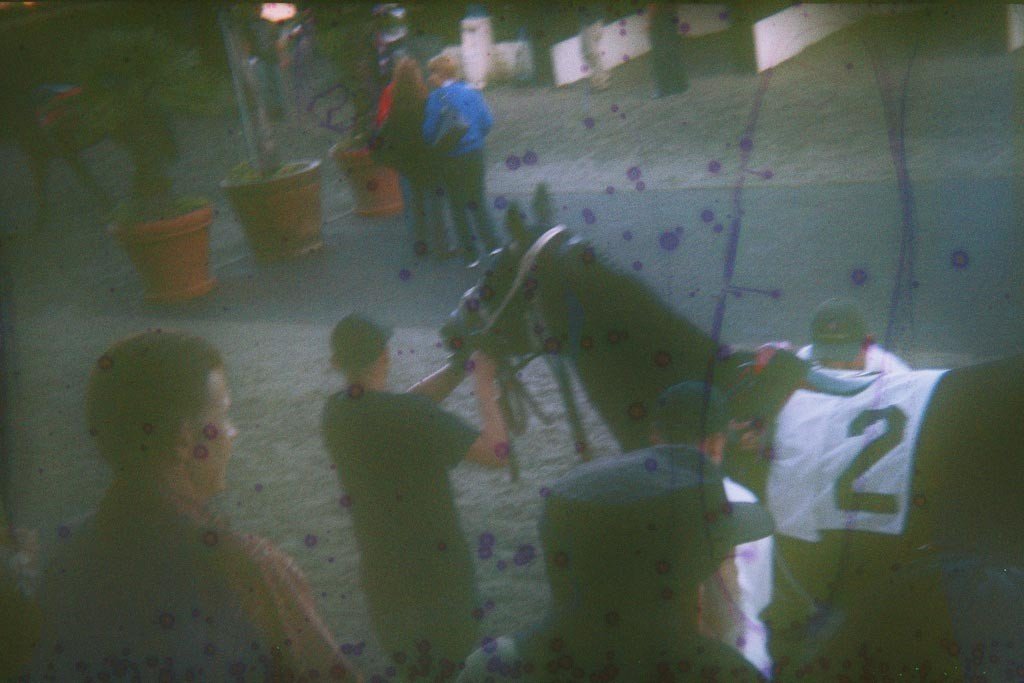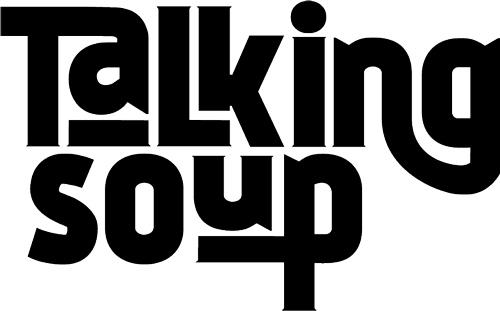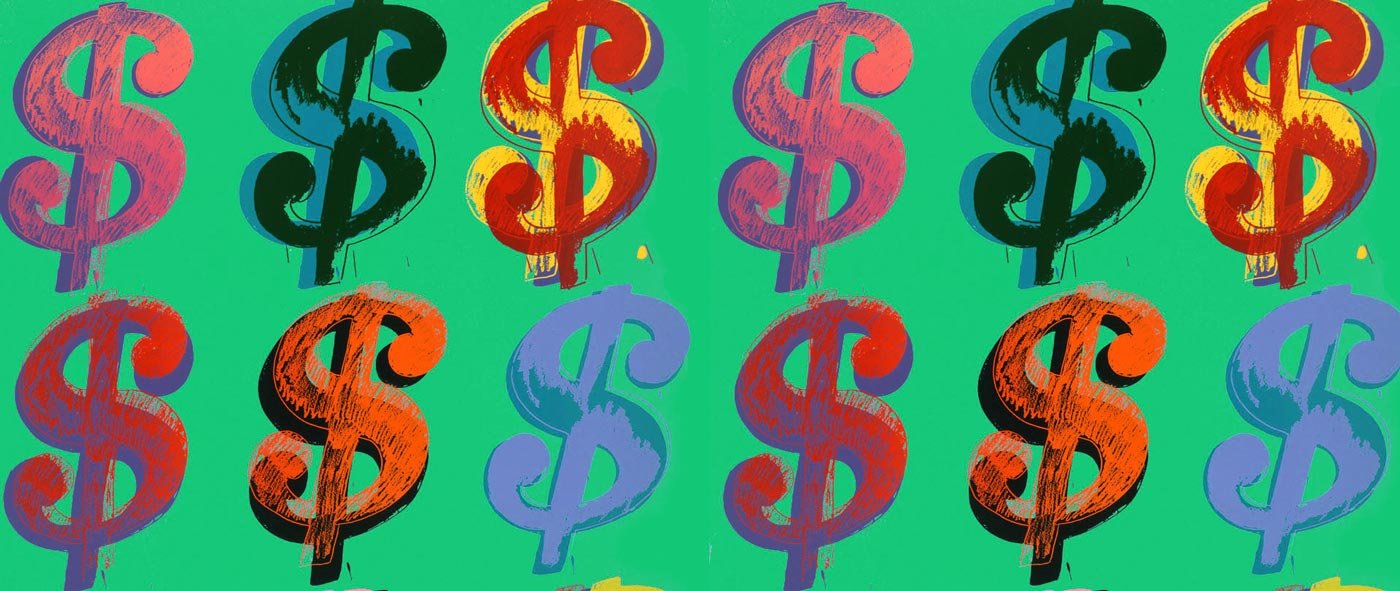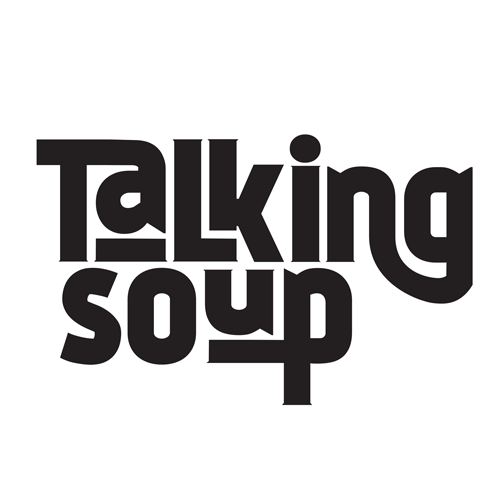‘Dollar Days’ is a weekly event held every Sunday in Golden Gate Fields horsing track, California. Lured by the cheap prices I decided it was time to delve into the culturally transcendent world of gambling.
“I think this is the line for valet,”
Jessie says as we pull up next to a man speaking rapid-fire English in a Colombian accent to a taxi driver exiting the parking lot. He turns to us and says “Ten dollars please.”
“We came for dollar days.”
“That’s on the other side of the building. You have to go out and get back on the highway and go one more exit down.”
Matt hands up the 10 dollars and we pull up. I am not sure what to make of this exchange. Not only the fact that we paid 10 dollars for parking at an event called “Dollar Days” (spoken strictly in the manner of a 1930s radio announcer with vocal fry and a sharp downward inflection at the end of each syllable), but also the fact that the entrance we were pulling up to looked like some kind of VIP area that was most likely going to also cost more than a dollar to enter. Correct in my assumptions, we have to walk down a hill and across another parking lot to get to the lower part of the stands where entry is only a dollar.
I went that morning with my girlfriend and a group of friends to Golden Gate Fields in Berkeley, California to soak up the sun and beer and hot dogs and horse races. While horse races differ greatly in format and length across all cultures, the main objective of the sport remains the same: to determine which horse is faster when running a previously agreed upon course.
The worldwide market for gambling on horse races has reached into the hundreds of billions, making it one of the most widespread and culturally transcendent of all varieties of gambling. The philosophy and methods of betting, at their pinnacles, can become incredibly complicated and appear entirely out of reach of the casual gambler.
On our way in, heading straight for the beer and hot dog stand, I’m caught in the allure of the program stand. Out of a small shed with two windows two middle-aged women sell programs of all the races for the day. They also offer for sale a “tip sheet.” What tips could the horse track truly be handing out to people? Surely not ones that will help them win; this seems totally and unarguably against the goal of the horse track – which one is safe to assume boils down to “take their money.” Although, when you look at it from the point of view of the horse track selling unsuspecting patrons tip sheets filled with bullshit from top to bottom, it lines right up with that goal.
Dubious about the efficacy of both, eager to get to the refreshments, I purchase a program only. It is until I arrive at the horse track that I forget Mexican cowboys exist. I see a tall Latino man, made taller by the heels on his leather boots, wearing Wranglers, a black button-up shirt with roses embroidered on the shoulders with white piping and a 10-gallon cowboy hat that looks stiff as cardboard.
Horse racing has traditionally attracted a variety of people, but Dollar Days tends to bring out every type of person you can think of: goths, cowboys, the young and the elderly, families taking the kids out for a bit of cheap fun, couples enjoying a date on Sunday afternoon. Then, of course, you have another subset that any individual of these groups could also fall into: the serious gambler. I meet a few of these later in the day, but for the most part on Sundays you are surrounded by casual gamblers who are there just as much for the cheap beer and hot dogs as they are to lay down two- and three-dollar bets on the horses whose names they like the most.
Bets can be placed in an intimidatingly large variety of ways. There are two main categories of bets available, straight bets and exotic bets. Straight bets are simply money placed against the odds of a certain result in the race: that a particular horse is going to win, that a particular horse is going to finish in a particular place or that a particular horse is going to finish in any of first, second or third place. Exotic bets consist of two different types of understandable albeit complicated bets: vertical and horizontal. Horizontal bets are placed over multiple races, and vertical bets are placed on multiple horses and their finishing places in the same race. None of this is immediately at arm’s length for the casual gambler to grasp. Nowhere in the program is any of this illuminated for the reader. The unmanned betting machines are surrounded by people discussing their many and various wagers. To further any existing confusion there are televised races from another track that can be bet upon as well.
I weave my way half-blindly through the crowd, following in Jessie’s footsteps with my nose in the program, until we reach the hot dog and beer stand. I trade five wooden dollars, exchanged with real dollars by one of our group while I attempted decipher the names of the horses and the different ways to place wagers on said horses, that have been thrust into my hands, for two Miller Lites and three hot dogs. The condiment stand is another matter in and of itself. Patrons compete for a spot in a line organized more like a blob and the sweet relish dispenser suddenly runs out of relish right before I arrive at the front of the line. Shortly we are on our way to find some seats laden with hot dogs covered in all the fixings and as much beer as they would give us at the beer stand (limit: two each).
At our seats in the stands, half in the shadow of the VIP section we were directed away from after the valet took our vehicle, everyone settles in, gets situated, sips their beers and, for those who got them, start in on their hot dogs. Surrounded by cheap beer and cheap hot dogs and cheap people, I can see the horses as they prepare for the first race of the day. They trot out next to their companion horses so the spectators can get a good look. According to the program, when choosing a horse there are a number of physical features to be considered: arched neck, ears pricked forward, light on the hooves, slightly raised tail, shiny coat. All of these physical characteristics are touted as indicators of happiness, energy, awareness and confidence. Many of the horses display nearly all if not all of these qualities, and the criteria at best seems to indicate to me this will be a very close race.

There are objections of conscience for many regarding horse racing, as can be expected of any sport involving forcing a beast to push the edges of his own personal envelope regardless of fears or emotions. You do not have to watch more than one race to understand that the jockeys literally whip the horses with their crops to run faster the entire way around the track. And that is only on the surface. The abuse of horses goes much deeper.
Purebred horses live no other life than one of racing. From a young age they are trained and know nothing other than the race. They live in stables with other racing horses, interact with humans for no other reason than racing and training for racing, they are groomed and horseshoe-ed and praised and punished all around the central theme of racing. For these purebred horses are expensive, vastly and unimaginably expensive, and they had better make their trainers some money on the track. Otherwise, in the eyes of the trainer…what good are they? The horse’s entire worth is based upon the sport of horse racing.
From one angle, you can argue the horses never know anything else, and so how can they bemoan the racing life, which is an altogether closed-minded and anti-empathetic way of viewing any situation. Unfortunately, the pure race life that a high-tier race horse experiences is not always the bad part. In recent years it has come to light that there is a great deal of inappropriate narcotic use on horses. The drugs are used for any number of reasons that can include racing on hurt legs, numbing the pain of racing so that horses can run longer and bringing the horses up to standard for weigh-in and qualification.
In an attempt to push most of these complicated moral questions aside, I, along with everyone else in the stands, assume the horses racing today at Golden Gate Fields are not drugged and have not been treated poorly by their trainers or jockeys. When you are out at the horse track to eat hot dogs and drink beer and have a generally good time, it is easy to forget the idea that these horses are worked nearly to death for our enjoyment. Regardless the question remains: do we not think about it because we do not care? Or do we not think about it because it’s a tough question and we just don’t want to have to think about it?
I have not placed any bets on the first race. To be honest, and as I have said already, my main goal as soon as we walked in was the dollar refreshments tent and finding a spot in the shade to enjoy my lunch. A trumpeter, clad in full horse-racing regalia, belts out the melodies to “La Cucaracha” and “Happy Birthday” before “The Call to Post” which indicates horses and jockeys need to be ready to begin the pre-race parade. Later he will perform a stirring rendition of the Star Wars theme music to much uproarious applause.
The horses have trotted for the spectators and approached the starting gate. With a sudden burst of motion the gate has opened and the horses take off down the track. Within seconds they are almost out of view around the first curve. Track hands begin to smooth the dirt with rakes where the horses first dug their shoes in for the explosive first moments. As the horses move further and further away they appear to be moving slower and slower. Their progress around the track seems meagre compared to the violent start until they begin to move back towards the stands on the third curve. And before we know it they are back in front of us and everyone is standing up and everyone is cheering for their horse and it’s a close finish between three horses and everyone is screaming and then it is over.
All at once the crowd divides itself into utter joy at having bet on the right horse or dejection at any other outcome. Or, in the case of one of my companions who had already placed some wagers, confusion on just where in the hell his horse was in the race.
Joseph Meehan is a writer who lives in Oakland, CA. He enjoys reading, writing, hiking, gardening and cooking. Along with his girlfriend and his dog, he can often be found hiking throughout the greater Bay Area.








